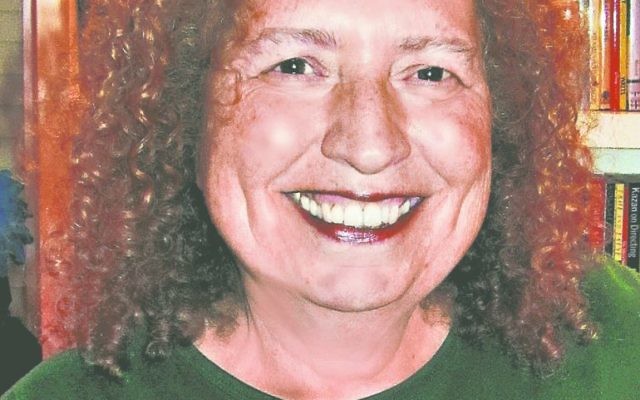They Showed Me How
Chana Shapiro's reflections on influential women in her life.
Chana Shapiro is an educator, writer, editor and illustrator whose work has appeared in journals, newspapers and magazines. She is a regular contributor to the AJT.
Mother’s Day is a great time to acknowledge some of the women, other than my own remarkable mother, who taught and nurtured me.
My friend Liz Stark’s mother was different from the other mothers I knew. She baked and cooked with ingredients I’d never heard of, made her own beautiful clothes and grew flowers and vegetables in a huge backyard, where she had constructed a sturdy trellis that supported grapevines. It was the late 50s before DIY (Do It Yourself) became a movement. Mrs. Stark drove a “woody” station wagon in which she kept handmade pots, potting soil, oil paints, an easel and canvases. These supplies enabled her to stop at a moment’s notice to pick up an intriguing plant or spend a few hours painting al fresco. The Starks were wealthy and generous, and I knew that Mrs. Stark designed and sewed the gowns she wore to the tributes and fundraisers she and her husband attended. Liz and I were always welcome in Mrs. Stark’s sewing room, kitchen, studio and garden, where we stained our clothes, got dirty, and learned the pleasures of making things with our own hands.
Augusta Gottlieb was the kind of high school English teacher some kids hate. I loved her, and she got hold of me and wouldn’t let go. She made us read hard books, write every day and discuss and debate endlessly. Some of us were strong-armed into entering competitions and contributing to magazines that featured the work of teenagers. One evening, I was sitting at the kitchen table. Having finished my homework, I was crafting an ode to my boyfriend, a guitar-playing would-be poet whom Mrs. Gottlieb did not like. The phone rang. It was Mrs. Gottlieb making sure that I wasn’t wasting my time doing anything “frivolous.” I was supposed to be writing for a citywide contest. It’s a good thing I obeyed my teacher because I did merit an award, … just a few weeks before my poetic breakup. When I got to college, I turned in a paper for a freshman Creative Writing class. On the cover sheet, the professor wrote, “Nice Work. Was Augusta Gottlieb your English teacher?” Apparently, Mrs. Gottlieb’s educational tough love had gotten around.
When my husband and I moved to the Bronx as newlyweds, I was introduced to Edith, who became my closest friend. She painted her regulation apartment refrigerator bright blue, years before common folk could afford colorful appliances. She knew New York’s Lower East Side like the back of her hand and identified the best place to buy underwear, kosher cheese and colored pencils. She had a million plants and just as many pieces of sparkling cookware, all of this in a one-bedroom apartment that also featured a round wooden trestle table at which we played Scrabble while I did my laundry in her mini washing machine. Edith had a lot of challenges in her life, including a low income and poor health. She taught me that laughter is the best medicine and exploring a new neighborhood can be a grand adventure.
I worked with Hope, who taught art. Our principal respected her, the teachers liked working with her, and the students adored her. She taught me that the most important things in school often happen before and after class, and she understood that complex issues often begin with seemingly minor ones. Hope was a lot of fun, an out-of-the-box thinker and problem-solver. If I wanted to adapt a non-kosher recipe, Hope, who wasn’t Jewish, figured out clever kosher alternatives. For my sister-in-law’s wedding, I didn’t want to pay for new footwear to match my expensive dress. Hope suggested using a complementary color of paint (not dye), with which I was able to transform a pair of black leather shoes buried in the back of my closet. When I told her I was moving to Atlanta, Hope wrote and illustrated a satire of my soon-to-be life among kudzu, highlighting its milk-or-meat compatibility and unappreciated nutritional power. As usual, she was onto something.
I never wonder about nature versus nurture. It’s true that I walk, talk, argue and laugh like my parents, but without these women and many more, I would never, for better or worse, have become me.




comments